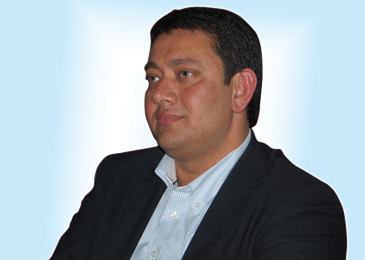"I wanted to be a part of the regulatory changes in the life sciences space"
April 05, 2013 | Friday | Features | By BioSpectrum Bureau
"I wanted to be a part of the regulatory changes in the life sciences space"
Dr Satya Dash, strategic alliance and partnership consultant, Biotechnology Industry Research Assistance Council (BIRAC)
My background in the life sciences industry has been rather unique. Born and raised in Sambalpur, Orissa, I was fortunate enough to pursue higher education abroad in the United Kingdom. Throughout my career, scholarships have played a huge role, and allowed me to pursue the best possible education at all. I hope to see more such scholarships gain prominence in India, from the industry as well. Towards the end of my PhD at University of East Anglia, I had decided that I wanted to be a part of technology policy.
Later, at the University of Cambridge, I worked on two projects, one on emerging industries and the other focused on India. The latter brought me to India where I was fortunate enough to speak to many prominent people like Dr Vijay Chandru, Dr Kiran Mazumdar-Shaw and was exposed to a number of things happening in India. I think, the guiding principle for me to come back, was the fact that I wanted be a part of this change in the life sciences space. I had a very interesting meeting with Dr Vijay Chandru, the then president of Association of Biotechnology Led Enterprises (ABLE), which was scheduled for just an hour, but it extended for over five hours. At the end of it, I was sure I wanted to come back to India. It worked out as a serendipity of sorts. The energy here in the life sciences space, right now is palpable, and I believe the timing was just right to come back.
I then began my role as chief operating officer at ABLE, where among many other things, I worked on a report that allowed me to have a wider perspective on the entire industry. At ABLE my role was both on the advocacy and operations side, whereas later on, at Indian Institutes of Management, Bangalore, I was a consultant, working on medical devices platforms. Recently, I have joined Biotechnology Industry Research Assistance Council (BIRAC), as a consultant, for partnerships and alliances to be part of the link between the government and industry.
I think Indians are very good in theoretical knowledge. However, the critical lacuna today is how to train students to think independently and critically. The mode of teaching, today is the same as it was two decades ago. Today, information is disseminated so easily through the internet where it has been democratized. Students need to utilize that tool more efficiently. We can use all the money we have, but we still have to develop a population of students who can do logical and critical thinking.
This is the most exciting time to be here, right mix of technology and young people. Returning back to India won't be much of a problem, if the positive trend of the economy continues, and if hierarchical system in universities becomes more relaxed, along with the boundaries between academia and industry become porous. At the end of the day, anybody would want to live in their own country.
(As told to Manasi Vaidya)
These are the personal views of the speaker and not reflective of BIRAC









